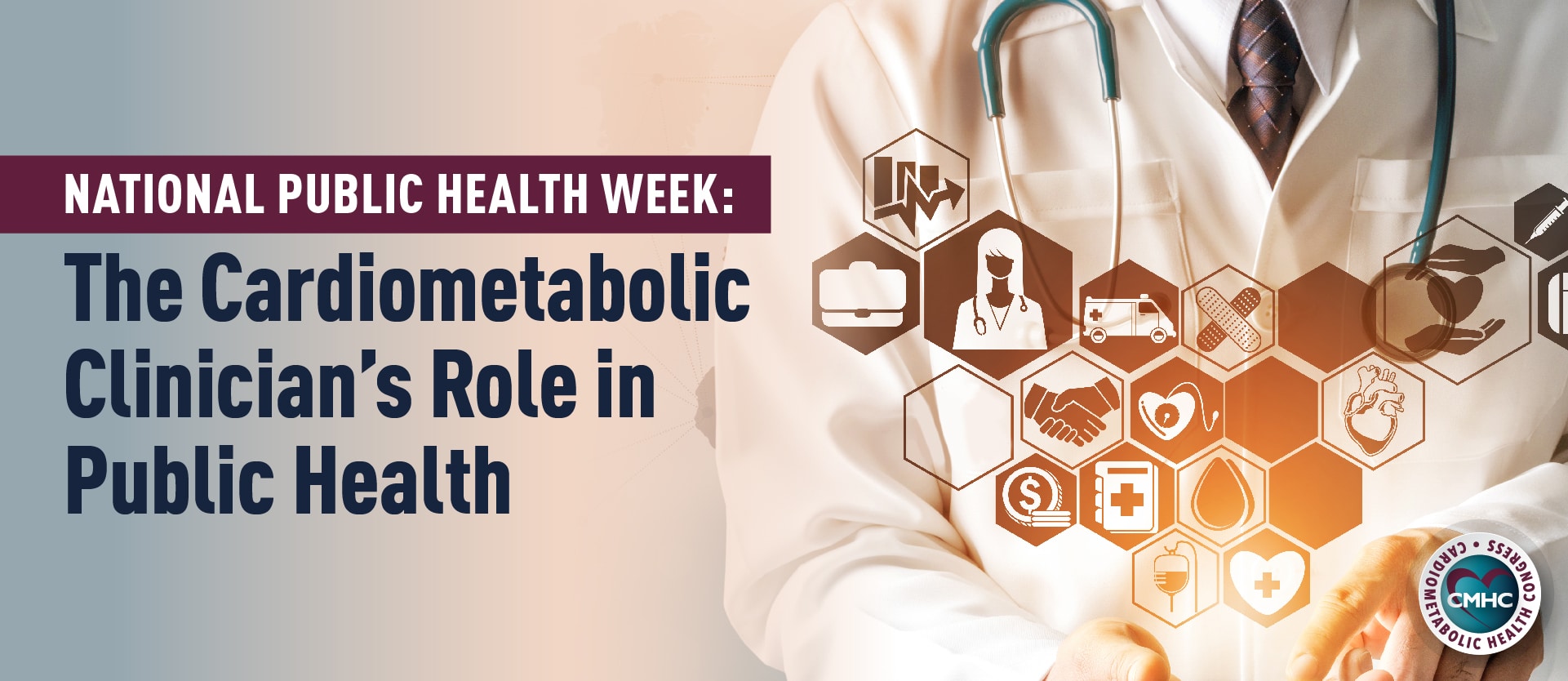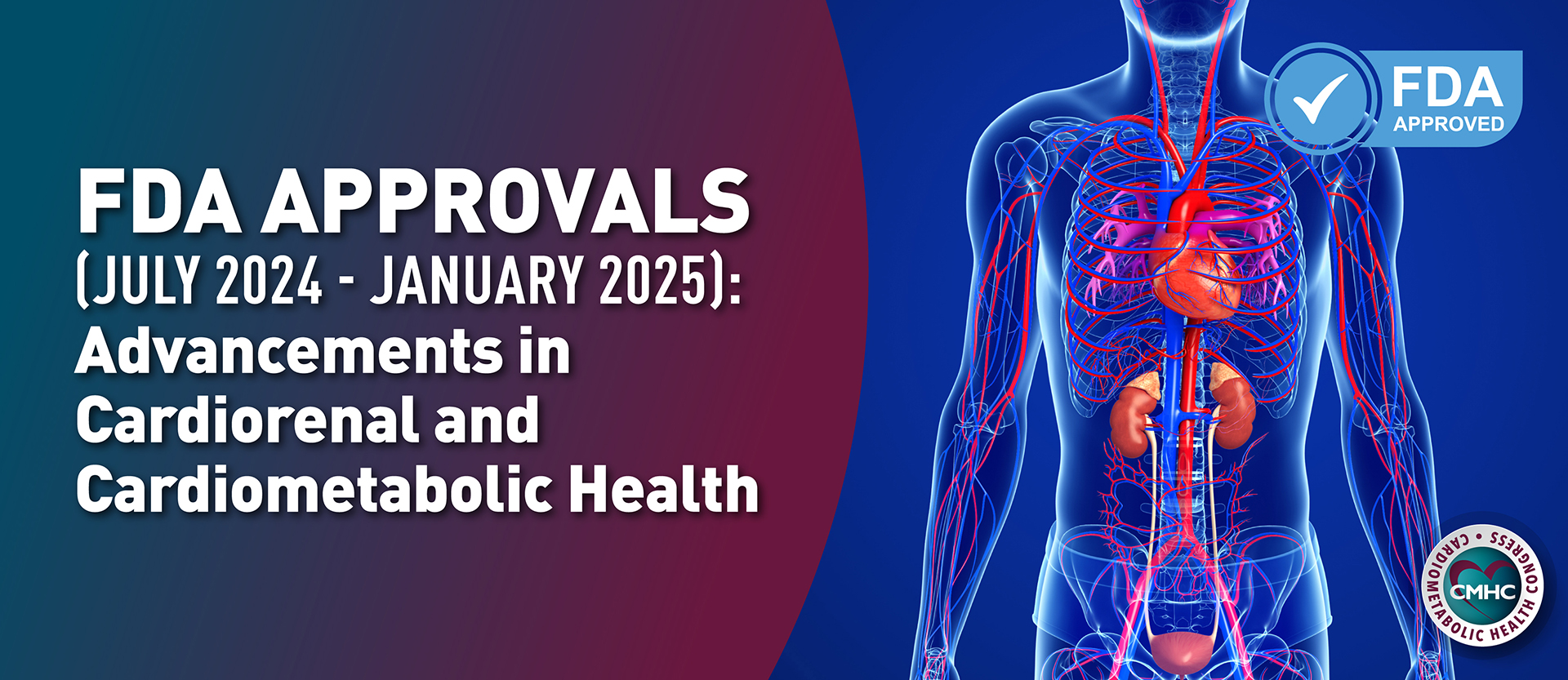Taking place between April 5-11, 2021, National Public Health Week celebrates the importance of public health. This year, the week presents an opportunity to take a closer look at the particular challenges presented in the past year across the globe through a public health lens. In honor of this initiative, CMHC highlights the role of the cardiometabolic clinician in the promotion and support of population health and public health initiatives.
Currently, an estimated 47 million people in the United States are living with cardiometabolic disease and many more suffer from combinations of risk factors that predispose them to future illness. Rising rates of cardiometabolic disease as well as the high burden of disease – on population health and socioeconomic factors among others – there is a need to shift healthcare from a treatment-based approach to one that prioritizes prevention. Previously, cardiometabolic professionals have predominantly focused on improving survival rates in patients diagnosed with disease and ensuring the best possible health outcomes. Although this has greatly improved mortality rates, a treatment-based approach to care contributes to healthcare inefficiencies and inequities rather than optimizing public health.
Cardiometabolic Multimorbidity and Population Health
The three most common chronic diseases contributing to population health burdens across the globe – stroke, cardiovascular disease, and diabetes – are also the leading causes of health resource use, hospitalizations, morbidity, and mortality. With a high risk of co-occurrence, these diseases often result in cardiometabolic multimorbidity which further raises the risk of patient mortality. Additionally, multimorbidity often leads to clinically complex, unique healthcare challenges that can culminate in adverse health outcomes such as premature mortality, long-term complications, low quality of life, and disability. Currently, research on the optimal management of chronic disease is lacking; such knowledge would help inform healthcare professionals and policy makers as they attempt to alleviate persisting barriers to efficient care delivery.
Shifting the Focus, Transforming Patient Care
The healthcare management of patients with multiple chronic diseases (multimorbidity) is based on disease-specific strategies that are independent, often leading to fragmented, episodic care. Patients are forced to navigate multiple providers and systems to receive the care they need while also dealing with healthcare inefficiencies such as insurance challenges, delayed wait times, and other barriers to access. Despite significant strides in the treatment of cardiometabolic diseases and reductions in mortality, cardiovascular disease remains the leading cause of death across the globe as a result.
Expert cardiometabolic clinicians weighed in on the problem, citing health inequities and gaps in patient outcomes as primary areas of concern that need to be addressed on both an individual and institutional level. This will require political commitments and policy changes specifically targeting the prevention of non-communicable diseases across global populations – a shift toward maintaining patient health before diseases arise.
In daily medical practice, cardiometabolic clinicians play an invaluable role which they can leverage to promote effective population health interventions. A significant part of this requires an increased focus on the strengthening and improvement of patient-provider relationships which will in turn bolster patient engagement. Using a personalized approach by tailoring the care model to cater to specific patient needs, clinicians can not only improve individual health outcomes but also that of the global population while extending the notion of care outside of the corners of the physician’s office with continued medical support.
Alongside a growing aging population, a global obesity epidemic and the related spike in cardiometabolic disease and risk factor prevalence preclude the further use of a treatment-oriented care model. In light of the recent pandemic and the significant toll it has exerted on population health as well as healthcare systems across the globe, now is the time to take necessary steps toward improving public health. The current health environment requires wide-scale transformation of existing institutional protocols as well as the concentrated efforts of clinicians in routine practice who aim to refine the specialty of cardiometabolic medicine while rebuilding the foundation of public health.


















